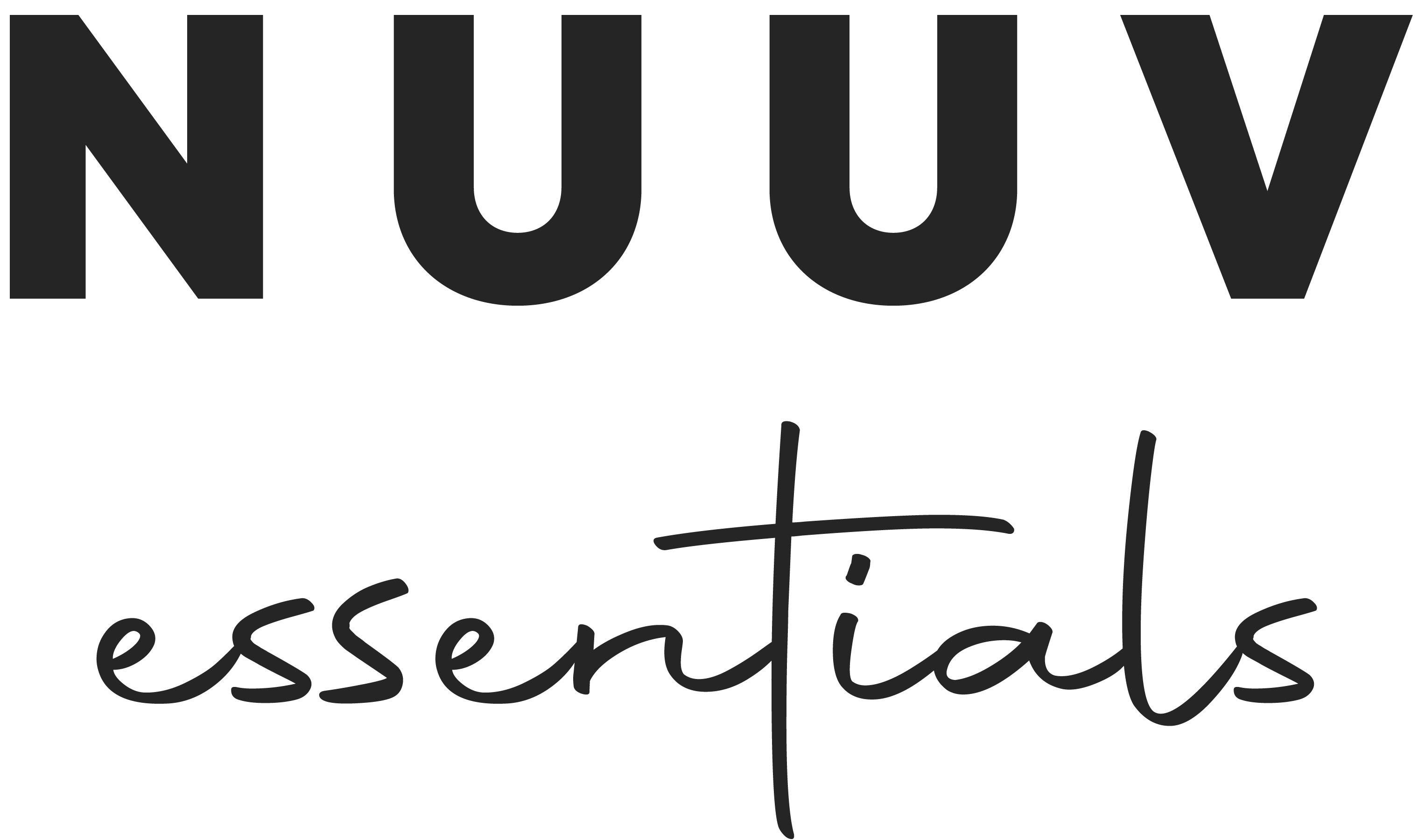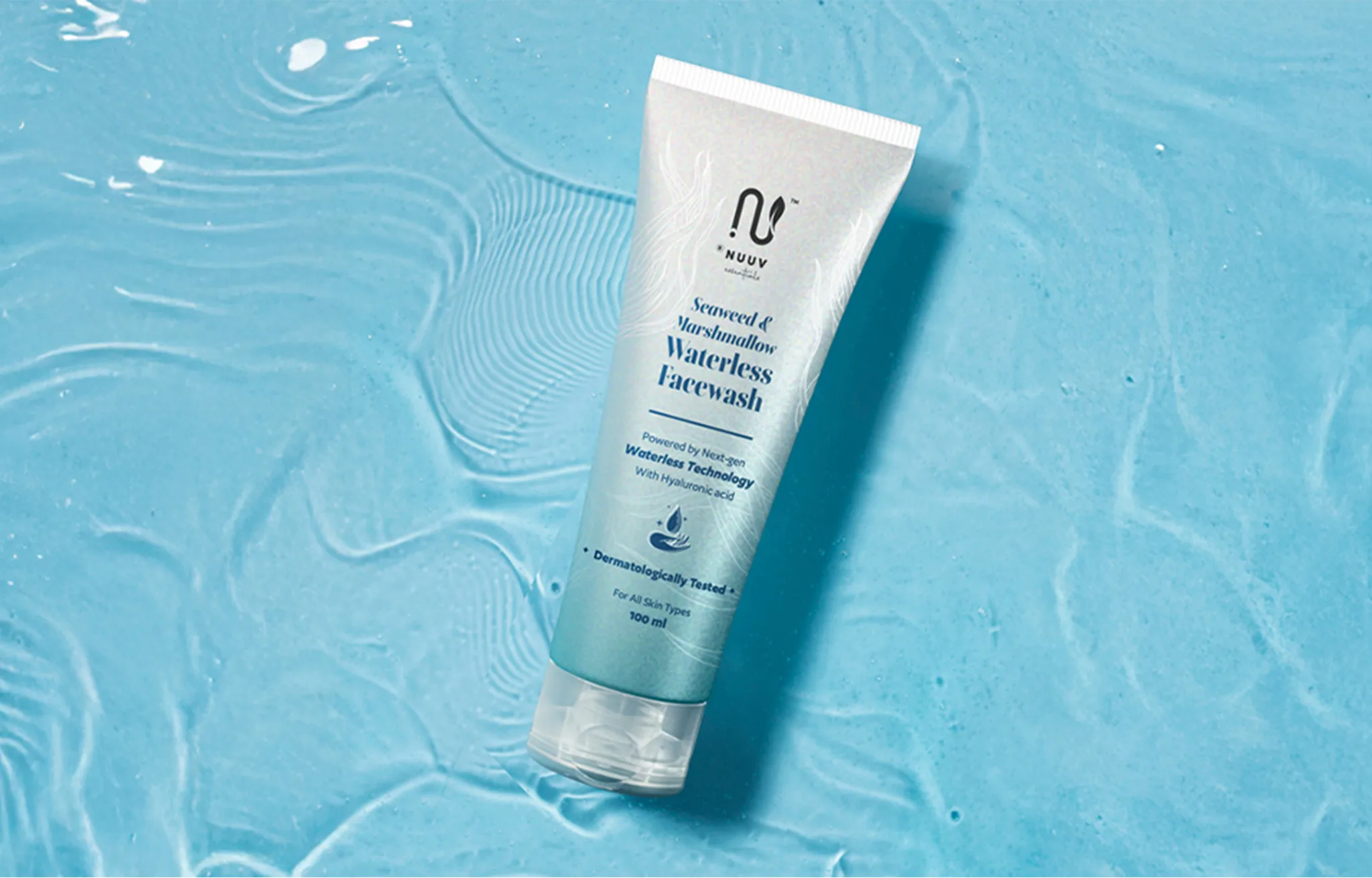First, Why Does Monsoon = Breakouts?
During monsoon, the air is thick with moisture, which traps sweat, sebum, and bacteria on your skin. That lovely combo clogs pores and creates a breeding ground for acne—especially on already oily or acne-prone skin.
But it doesn’t stop there:
- Humidity increases oil production
- Pollution mixes with moisture, forming a sticky film on your face
- Hard water from rain-soaked tanks or taps can irritate and dry out your skin
- Wet clothes, damp towels, and indoor moisture can trigger fungal acne and body breakouts and yes maskne is still a thing.
Rule 1: Cleanse Gently but Thoroughly (Twice a Day, No Excuses)
Cleansing is your first line of defense—but not with a harsh, stripping facewash. You want a sulfate-free, anti-inflammatory cleanser that removes sweat, pollution, and excess oil without drying your skin.
Try: NUUV’s Tulsi + Green Tea Facewash
- Tulsi = antibacterial, oil-balancing, anti-acne
- Green Tea = anti-inflammatory + sebum control
- Sulfate-free, so it won’t damage your skin barrier (especially with hard water)
- Works beautifully for oily, acne-prone, or combination skin types
Use it morning and night, and always after getting drenched or sweating through your mask. Trust us—this one’s your monsoon MVP.
Rule 2: Go Lightweight—Say No to Heavy Creams
That thick moisturizer you loved in winter? Not your friend right now. In this humidity, heavy creams can trap sweat and bacteria under your skin, causing clogged pores and fungal acne.
What to use instead:
- Gel-based moisturizers
- Non-comedogenic hydrators
- Serums with niacinamide or hyaluronic acid (for balance, not grease)
Bonus tip: Use less product overall. Sometimes, more layers = more problems in humid weather.
Rule 3: Watch Out for Hard Water Reactions
If your water source is from tanks, borewells, or hard pipelines (common during monsoon), it might be messing with your skin more than you know. Hard water + harsh cleanser = irritation, dryness, breakouts.
How to protect your skin:
- Always use a gentle, pH-balanced cleanser (like NUUV’s)
- Pat, don’t rub your skin dry
- If you suspect a hard water reaction, rinse with filtered water or use micellar water post-cleansing
Rule 4: Shield Against Pollution (Yes, Even When It’s Raining)
Monsoon doesn’t wash away air pollution. Moisture + pollutants can cling to your skin longer, causing irritation, pigmentation, and—you guessed it—breakouts.
Make sure your skincare includes:
- Antioxidant-rich ingredients (like green tea, niacinamide, seaweed)
- Double cleansing in the evening, especially if you’ve been out all day
- Lightweight SPF when stepping out—even on cloudy days
NUUV’s Tulsi + Green Tea Facewash works great here too—tackling both pollution buildup and acne bacteria in one go.
Rule 5: Fungal Acne? Keep It Dry, Clean, and Breathable
Fungal acne isn’t the same as regular acne—it’s caused by yeast, thrives in damp environments, and flares up on the forehead, back, or chest.
To manage or prevent it:
- Avoid reusing damp towels or wearing tight, sweaty clothes for too long
- Shower after sweating (especially after workouts or getting drenched)
- Use a sweat-friendly body cleanser like NUUV’s Moisturizing Bodywash with hyaluronic acid + avocado to gently hydrate without feeding the fungus
Pro Tip: Don’t skip the body! Fungal acne loves neglected zones like the back, arms, and neck.
Bonus Tips for Monsoon Skin Survival
- Change pillowcases every 2–3 days
- Use blotting papers instead of face wipes
- Keep your hair off your face—wet bangs = forehead breakouts
- Carry a small cleansing mist or micellar pad if you’re on the move
Monsoon Skincare Routine – At a Glance
| Step | Product | Purpose |
| Cleanser | NUUV Tulsi + Green Tea Facewash | Oil control, acne prevention, and pollution removal |
| Moisturizer | Gel-based | Hydration without heaviness |
| Body Cleanser | NUUV Hyaluronic + Avocado Bodywash | Nourishes skin post-sweat, fights dryness |
| Midday Freshen-Up | Face mist or blotting | Controls the oil and humidity impact |
| Extras | Clean towels, SPF, fresh pillowcases | Support your skin barrier |
FAQs
How often should I cleanse my face during monsoon?
Twice a day is enough—over-cleansing can irritate your skin. But wash after sweating, exposure to rain, or pollution-heavy days.
Can I exfoliate during the rainy season?
Yes, but gently and only 1–2 times a week. Over-exfoliation can worsen fungal acne or damage your barrier.
What if my skin feels dry and oily?
That’s common in the monsoon. Use a balancing facewash like NUUV’s, and a gel moisturizer to hydrate without clogging.
Is fungal acne contagious?
Not directly, but shared damp towels or clothes can make it worse—stay clean and dry!
Final Thought: Glow Through the Grey
Rain or shine, your skin deserves care that works with the weather, not against it. By sticking to these 5 rules (and using products made for your Indian skin), you’ll breeze through the monsoon with less oil, fewer breakouts, and more confidence.
This monsoon, fight back—with balance, calm, and NUUV-powered clarity.







